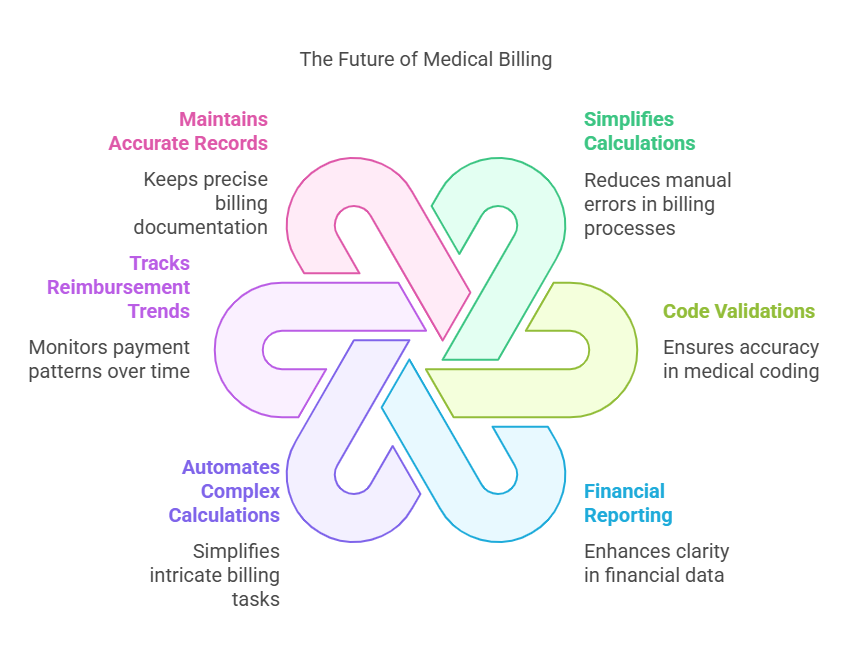How Is Math Used in Medical Billing and Coding? A Comprehensive Guide
Math plays a critical role in the medical billing and coding profession. It ensures accurate billing, correct reimbursements, and error-free processing of patient claims. Medical billers and coders need to apply basic arithmetic like addition, subtraction, multiplication, and division daily.
Whether calculating the cost of medical services or applying specific codes to procedures, math skills are essential for accurate documentation and financial transactions. Without the correct calculations, healthcare providers could face revenue losses or claim denials.
Understanding Medical Terminology and Coding Systems
Medical billing and coding require assigning codes to diagnoses, procedures, and treatments found in patient records. These codes, governed by systems like ICD-10-CM (International Classification of Diseases) and CPT (Current Procedural Terminology), ensure consistency in healthcare documentation. Earning a medical billing and coding certification through organizations like AMBCI (American Medical Billing and Coding Institute) can enhance your expertise and open doors to rewarding careers in healthcare administration.
A clear understanding of medical terminology is vital to avoid coding errors. Since billing depends on accurately translating medical records into codes, math skills combined with medical knowledge form the foundation of this profession.
Calculating Medical Costs and Reimbursement Rates
Medical billers use math to calculate service charges based on factors like time, resources, and complexity of procedures. They also calculate reimbursement rates considering healthcare guidelines, insurance company rules, and government policies.
Reimbursement rates are often adjusted based on supply costs, physician fees, and overhead expenses. Having strong math skills enables billers to ensure fair compensation for healthcare providers and avoid underbilling or overbilling issues.
Working with Healthcare Providers
Medical billers and coders collaborate closely with healthcare providers to ensure accuracy in billing processes. Effective communication and a thorough understanding of financial data allow billers to support healthcare providers in managing their revenue cycles.
By using math to analyze reports and identify billing trends, coders contribute valuable insights that improve operational efficiency and financial health.
Avoiding Errors and Costly Mistakes
Mistakes in medical billing, especially in calculations, can lead to claim rejections, delayed payments, and legal complications. Math proficiency allows billers to catch discrepancies, prevent fraud, and maintain ethical standards.
Medical billers must cross-check their calculations, review coding guidelines, and use software tools to validate their work. Accuracy is critical to ensure smooth operations and prevent financial losses.
Data Analysis and Reporting in Medical Billing
In 2025, data analysis has become more significant in medical billing and coding. Healthcare organizations rely on detailed reports to make informed decisions about patient care, budgeting, and resource allocation.
Medical billers use math to interpret data, identify patterns, and create financial reports. These reports help healthcare providers optimize services, detect fraudulent claims, and forecast future needs. Analytical skills in math support transparency and enhance overall healthcare management.
Education Requirements and Certifications
Medical billing and coding professionals need formal education and certifications to stay competitive in the industry. Certifications from organizations like AAPC (American Academy of Professional Coders) or AHIMA (American Health Information Management Association) often require math skills as a prerequisite.
Continuous education is vital to stay updated with coding changes, healthcare regulations, and advanced billing software technologies in 2025.
Medical Billing Software and Technology in 2025
Modern medical billing software simplifies calculations, code validations, and financial reporting. These tools minimize manual errors and increase efficiency.
Proficiency in using billing software and understanding its mathematical functions is essential for today's medical billers. The latest software automates complex calculations, tracks reimbursement trends, and helps maintain accurate billing records.
Career Advancement Opportunities
In 2025, math skills are even more valuable for career growth in healthcare management roles within medical billing and coding. Professionals with financial analysis expertise can advance to positions like revenue cycle manager, billing supervisor, or healthcare financial analyst.
Knowledge of budgeting, revenue management, and cost-saving strategies is essential for higher-level roles in this industry.
Conclusion: Why Math Skills Matter in Medical Billing
Math skills are fundamental to the success of any medical billing and coding professional. From calculating costs to analyzing financial data, math ensures accuracy and efficiency in healthcare billing systems.
By sharpening their math skills, medical billing professionals can improve their job performance, minimize errors, and unlock new career opportunities in the ever-evolving healthcare landscape of 2025.
6 Lesser-Known Facts About Math in Medical Billing and Coding
The ICD-11 coding system, expected to be widely adopted in 2025, includes more complex coding structures that require advanced math skills for accurate documentation.
→ Source: World Health Organization ICD-11Medical billers sometimes calculate medical inflation rates to adjust reimbursement rates based on economic changes.
→ Source: Bureau of Labor StatisticsFraud detection in medical billing often involves analyzing mathematical patterns and anomalies in billing data.
→ Source: Healthcare Fraud Prevention PartnershipTime-based coding in telemedicine, which surged after the pandemic, requires detailed mathematical calculations for billing per minute of consultation.
→ Source: American Telemedicine AssociationMedical coders use risk adjustment scores, a mathematical formula used by insurance companies to estimate patient care costs.
→ Source: CMS Risk AdjustmentAI-powered billing tools in 2025 rely on machine learning algorithms that analyze millions of data points to suggest accurate coding combinations.
→ Source: HealthIT.gov
Frequently Asked Questions (FAQs)
-
No, you only need basic math skills like addition, subtraction, multiplication, and division. However, analytical skills and attention to detail are essential.
-
Popular software includes Kareo, AdvancedMD, and Athenahealth, which offer automated calculation features and code validations.
-
Math helps verify service charges, detect discrepancies, and prevent fraudulent claims, ensuring accuracy in billing processes.
-
Yes, the demand continues to grow due to the expansion of healthcare services and the increased need for accurate billing processes.
-
Absolutely. Professionals with strong math and data analysis skills can move into healthcare management, revenue analysis, or consulting roles.




